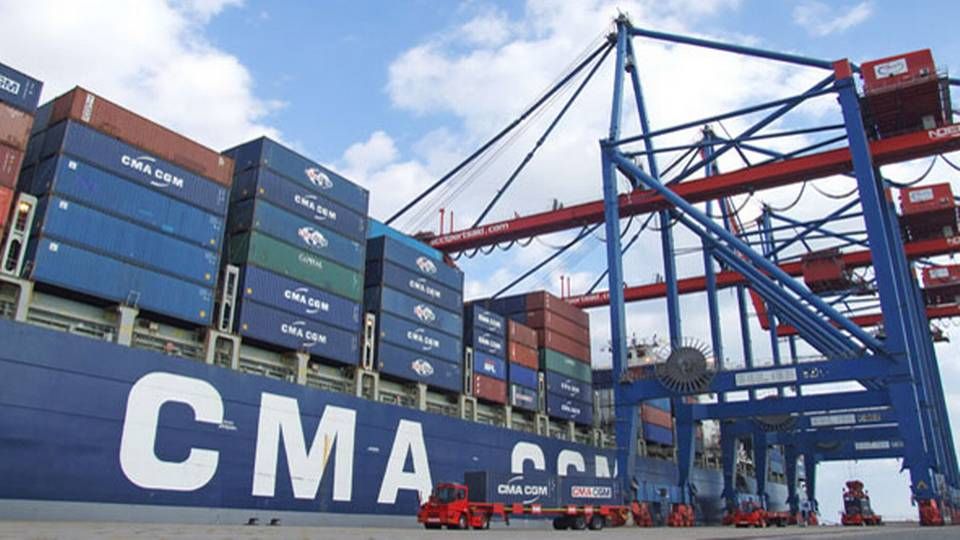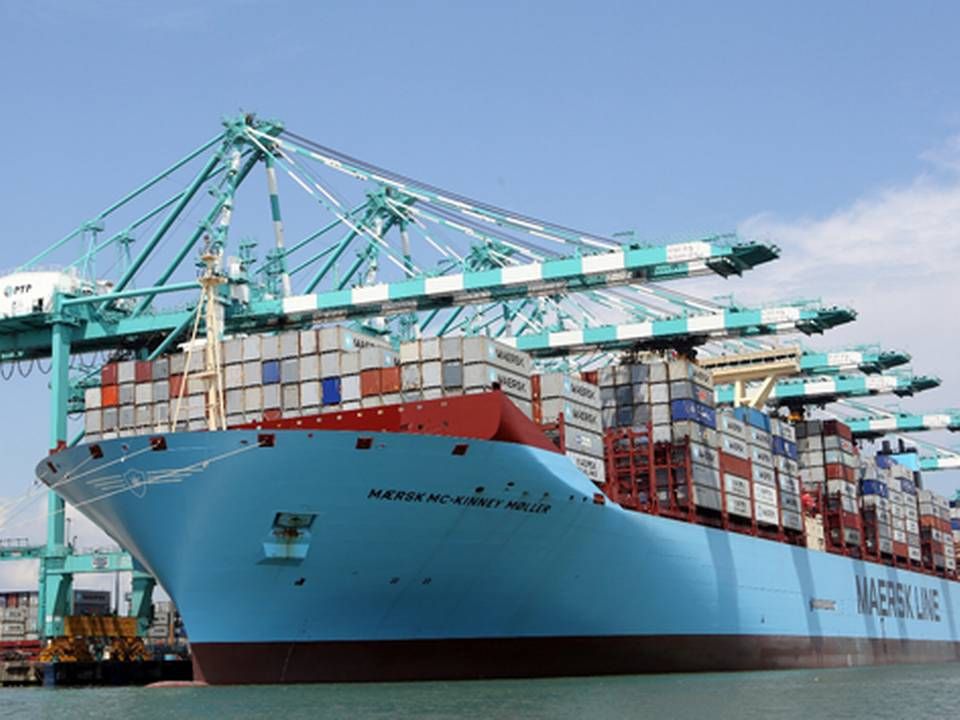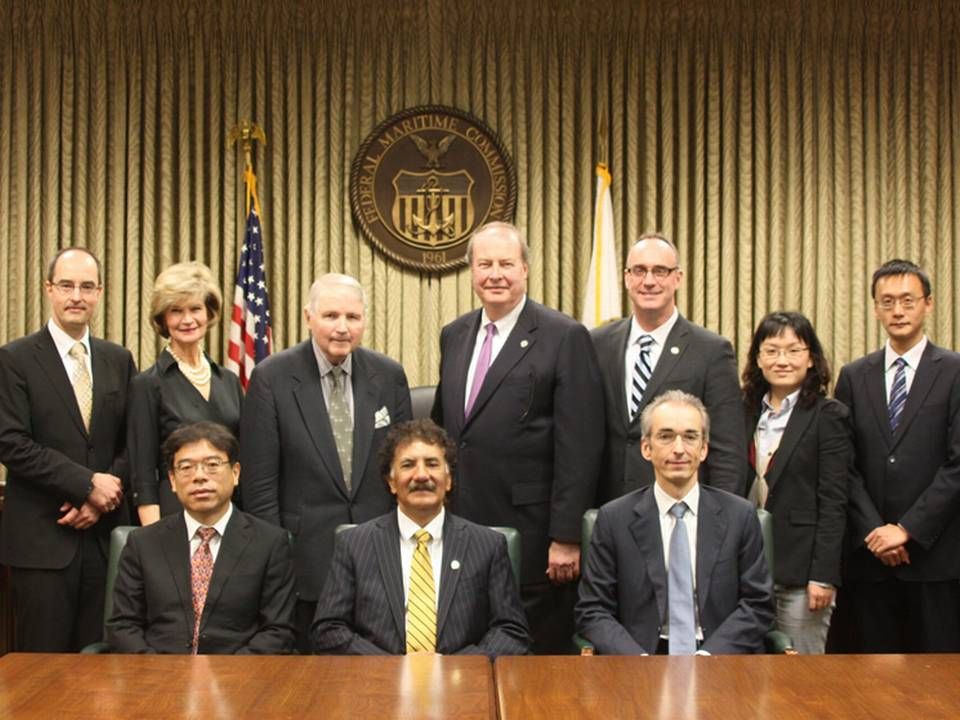P3 just one of more options for CMA CGM

The three carriers behind the coming P3 alliance are entering the giant collaboration with individual weight, and thus with varying degrees of clout and influence. To the public the decisions will appear unanimous, but internally the run-up period and the discussions between the three large European carriers will not necessarily be streamlined, as these are three very different companies.
On the one hand the three carriers share the fact that they are European and come from strong families that still hold the final word, either directly or through family funds. In this sense the carriers differ from many Asian container carriers, which are either owned or controlled by national states, such as China or Singapore.
But there is also a clear difference between Danish Maersk Line, Swiss MSC, and French CMA CGM. The most obvious difference is the size, where Maersk Line and MSC - with 15 and 14 percent of the global market, respectively - are in a league of their own compared to CMA CGM with its eight percent.
Different cultures
Culture is also highlighted by sources familiar with the three carriers as being very different. Especially after Nils Smedegaard Andersen took over as CEO of the Maersk Group and launched what has been described by some observers as a cultural revolution, drastically changing the communication and transparency of the Group. MSC is still controlled by the Italian Ponte family, as the family is literally and figuratively sitting at the end of the table in the company. And the same thing goes for CMA CGM, where the French-Lebanese Sadée family controls the shipping company. Jacques Rodolphe, Tanya Sadée.
"Container industry moving towards alliance model"
The three carriers know each other well and already have several cooperative agreements in place around the world, and a mere glance at the US authority FMC, the Federal Maritime Commission's archives shows the extent of the cooperation in the United States alone.
When the carriers in June 2013 decided to join forces to establish an alliance of unmatched size in container transport under the name of P3 (3 Partners), it came as a surprise to most. Because MSC and CMA CGM already had a fairly new alliance between them, which was created, among other things, to beat Maersk Line's Daily Maersk concept, and because there was not much to indicate less than a year ago that Maersk Line would be interested in cooperating with its two biggest competitors.
Not the first choice
And now it looks like P3 might not have been CMA CGM's first choice in terms of alliances. Sources familiar with the process tell ShippingWatch that the French container carrier late during the spring of 2013 was in negotiations about a different model, where the carrier would be the major participant, thus securing the de-facto veto right that can be crucial when partaking in a collaboration or alliance with similar companies.
This model was an alliance between French CMA CGM, UASC (United Arab Emirates), China Shipping, and Taiwanese Evergreen. According to sources the negotiations were long and, during the latter stages, took place primarily in Asia. The deciding factor that made the negotiations collapse was that Evergreen failed to act and come on board. And the three remaining carriers were not enough for the French company, which placed particular faith in the massive expansion plans of the Taiwanese carrier.
Maersk Line: P3 to be launched last part of 2Q 2014
According to several sources it was particularly Rodolphe Sadée, the son and de-facto daily head of CMA CGM who argued in favor of the new and strictly European P3 alliance, which might possibly have been launched in relation to the - to the public - secret box club meetings, where the top executives of the biggest container carriers meet. Maersk Line CEO Søren Skou represents Maersk Line, while the families represent the two other carriers. The meetings are held twice a year, thus including the first half of 2013.
Maersk takes the lead
Maersk Line has already placed itself at the head of the new alliance, which is still awaiting approval from the US and Chinese authorities. Specifically, Maersk Line's Lars Mikael Jensen has been named as CEO of the new company, which will be headquartered in London. And anything else would have been unheard of. The three carriers hold frequent meetings where they keep each other updated on the developments, but Lars Mikael Jensen has been given the job of putting together the team that will handle the daily operations of P3, which is expected to be launched in the second quarter 2014.
He is currently commuting between Marseille, Geneva, and Copenhagen in an effort to find the right people, to give P3 the proper balance both in day-to-day operations and in terms of its three big owners. And Europe's three big shipowning families.
ShippingWatch has asked CMA CGM to comment on the parallel negotiations, but the carrier declined to comment on the matter.
P3 worked with a Plan B for its launch
P3 summit ended without conclusions
Related articles
P3 worked with a Plan B for its launch
For subscribers
P3 summit ended without conclusions
For subscribers
This is the P3 alliance's best argument
For subscribers




















